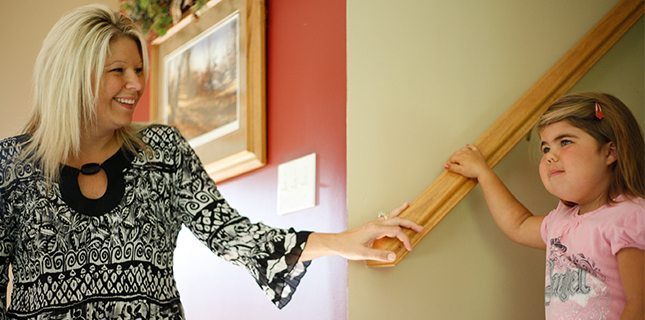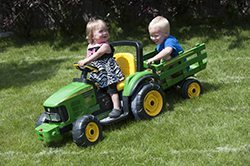3 Tips for Effectively Discussing Your Child’s Medical Diagnosis & Needs

Encourage specific questions – but realize you don’t have to answer them all
Try to encourage friends and family to ask direct questions instead of just ‘how’s your child doing?’ That’s a big question to any parent, and especially one whose child has a complex medical condition. By letting well-intentioned people know how many directions you could go with a broad question, they can ask what they’re truly wondering, and you can give them the information they’re looking for.
“When kids ask me questions, it’s almost easier to explain to them because they’re asking simple and straightforward questions and I can give them direct answers,” says Molly, mother to Addyson who has Trisomy 18. “Sometimes kids will asks ‘what’s that’ and point to her g-tube, and I can tell them it’s a tube that goes to her tummy and that’s how she eats. I know exactly what they’re wondering.”
 It may be easiest to approach questions with the most basic answers, and see if the conversation evolves from there. Also remember that you are your child’s best advocate, and you know what you are or aren’t interested in having a conversation with someone about.
It may be easiest to approach questions with the most basic answers, and see if the conversation evolves from there. Also remember that you are your child’s best advocate, and you know what you are or aren’t interested in having a conversation with someone about.
“Some families are really open and upfront, and some aren’t – it’s completely up to you and your comfort level,” says Monica Handlos, clinical social workers at PHS. “You don’t need to have expectations of how you have to do something, or what you have to say. Just think, how would you parent typically? And then incorporate the medical piece. You can go as shallow or deep as you want.”
Monica recommends thinking about if this is someone who will be in your life regularly, or is someone who won’t be around you and your child often – that may impact how much you choose to share.
Honestly (but simply) explain your child’s needs to other kids
Like Molly mentioned earlier, the great thing about kids is that they often ask what they’re wondering – and if they’re curious about your child’s special accessories or medical needs, answering them as honestly and completely as possible (depending on their age) helps them normalize the differences between people – an important step in acceptance for children. When Molly is able to tell other kids that her daughter’s g-tube is how she eats, just like other kids put food into their mouth to eat, they’re able to better connect the dots.
 “What makes us scared of just about anything is if we know nothing about it,” says Monica. “Once we understand why something is the way it is, it becomes more typical and less scary.”
“What makes us scared of just about anything is if we know nothing about it,” says Monica. “Once we understand why something is the way it is, it becomes more typical and less scary.”
If your child is school age, Monica recommends having a nurse, parent, or child life specialist go into the classroom and talk about it to his or her classmates. Especially for kids, if questions are not being answered, they formulate their own answers – sometimes leading to misconceptions or teasing.
If your child is interested in having play dates with classmates, Molly says that she recommends having them over to your house where you can sets up scenarios that encourage whatever activity level is appropriate for your child, and everyone can enjoy themselves. This way, other parents can also learn more about your child.
Use and find resources
Explaining your child’s diagnosis and keeping everybody updated can be exhausting and overwhelming. To make it easier for others to follow your journey without having to ask you for updates all the time, consider making a Caring Bridge site that you can update – meaning you only have to type the update once and everyone can stay up to date. Of course, as you see people you can fill them in on more, but at least they have a base knowledge beforehand.
 Another tip Molly shared is to find specific articles that help explain your child’s diagnosis or medical needs, on at least a general level.
Another tip Molly shared is to find specific articles that help explain your child’s diagnosis or medical needs, on at least a general level.
“I try to keep people from searching for her diagnosis online, because that can bring a lot of articles that might not be relevant to her situation at all,” says Molly. “Each child is so different, so if I find an article that is similar to her, I’ll pass it along because that’s the best way we can help friends and family understand her diagnosis better.”
If you have extended family who want to be more knowledgeable and up to date on your child’s condition, there are also Facebook groups for specific diagnoses where they can ask questions or learn more.
Originally published: December 2, 2016

